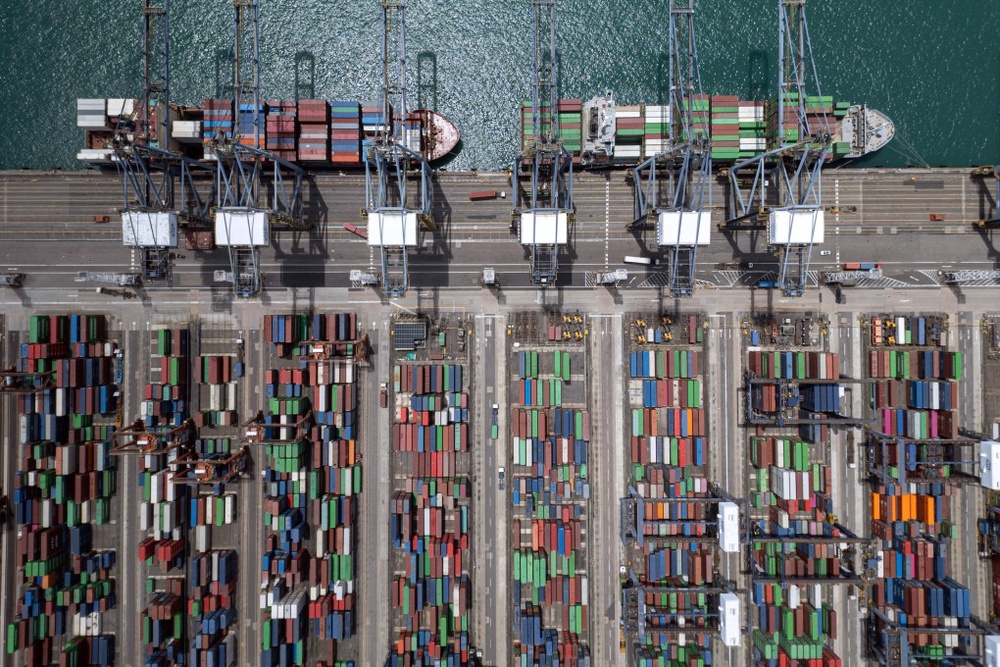
Uncertainties stemming from a reignited US tariff war will potentially cloud Hong Kong business expansion plans and dampen economic growth for the rest of the year, Trade Development Council chairman Frederick Ma Si-hang has said.
But in an exclusive interview with the Post, Ma expressed cautious optimism that a US-China trade deal could be reached by the end of the year, noting that Washington was aware heavy tariffs on Beijing would harm the economy and worsen inflation in the United States.
Last week, US President Donald Trump announced fresh tariffs on more than 60 countries, part of a shift towards a new era of protectionism. Observers also said Washington's decision to suspend the "de minimis" rule, which allowed small packages under US$800 to enter duty-free, was set to disrupt the global e-commerce sector.
Do you have questions about the biggest topics and trends from around the world? Get the answers with SCMP Knowledge, our new platform of curated content with explainers, FAQs, analyses and infographics brought to you by our award-winning team.
"The only certainty ... is uncertainty with President Trump these days and that makes business very difficult because in business we want to have certainty. Otherwise, why would you invest? Why would you expand your business?" Ma said.
"I can tell you that if you survey any business in the world today, they will be telling you 'I'm on a holding pattern', 'I don't want to do anything' ... This is probably the biggest problem affecting the world. This phenomenon is going to hurt businesses."
Hong Kong's economy grew by 3.1 per cent in the second quarter of 2025 from the same period last year, partly boosted by a rush of shipments ahead of potential new tariffs.
Ma warned that "a slowdown" could be expected in the second half for the city's growth in exports and the economy.
But he said that the situation in Hong Kong was already better than most places, considering its free port status, "one country, two systems" governing principle and support from mainland China. He also noted that the city had "for years" been mentally prepared since Trump's first term.
Born and educated in Hong Kong, Ma, 73, has extensive experience in banking and finance. He led two economic-related bureaus and also chaired the MTR Corporation before taking the helm at the Trade Development Council.
Asked about a potential deal between the US and China this year, Ma said he was optimistic over both the negotiations and global economy.
Trade talks between the two global powers in Stockholm, Sweden, concluded last week with Beijing announcing that both sides had agreed to extend their "tariff truce" by another 90 days. Trump said the two countries would reach a "fair" deal without revealing details.
"(The US) realises that China is so powerful and strong that it really cannot bully China like it did with, say, Canada," Ma told the Post. "If (Trump) slapped a very high tariff on China, it would affect his domestic economy as well because inflation may go higher, which means (the) interest rate has to rise, something that he doesn't want to see.
"I'm sure he would wait (for) all this and come up with a more relatively sensible solution."
Ma also expressed confidence in Hong Kong's financial markets, saying that they were poised to perform well "at least" until next year, buoyed by a strong pipeline of companies seeking to list in the city, though the longer-term outlook depended on global economic conditions.
Two months after taking the helm of the city's statutory trade promotion body, Ma said the council must intensify its efforts through a multifaceted approach to counter negative perceptions abroad.
He recounted recent trips to London and Paris, where business leaders told him they had not seen enough representatives from the city since the pandemic.
"We can't just sit here and expect people to sing praises about Hong Kong," he said. "I totally agree (the council) would step up in this area over time, at least during my tenure as chairman, because I really believe in communication."
Addressing concerns over the national security situation in Hong Kong, Ma stressed the importance of clarifying misconceptions surrounding the Beijing-imposed national security law, which has been in effect for five years and continues to spark criticism internationally.
"The national security law is absolutely essential to restore the security situation in Hong Kong," he said. "Many people (have) got this wrong perception about Hong Kong: 'Oh, you are becoming a police state. What's going on?'
"We need to tell the story."
More Articles from SCMP
China opens door to Brazilian coffee as US slaps on new tariff
New committee, bailout talk: is China launching a fresh property rescue effort?
Another storm brews for CK Hutchison under Panama ports partnership proposal
Why ‘Western hegemony is over’, learning lessons from Ukraine war: SCMP daily highlights
American Mathematical Society fellow Li Hanfeng joins China’s Chongqing University
This article originally appeared on the South China Morning Post (www.scmp.com), the leading news media reporting on China and Asia.
Copyright (c) 2025. South China Morning Post Publishers Ltd. All rights reserved.
